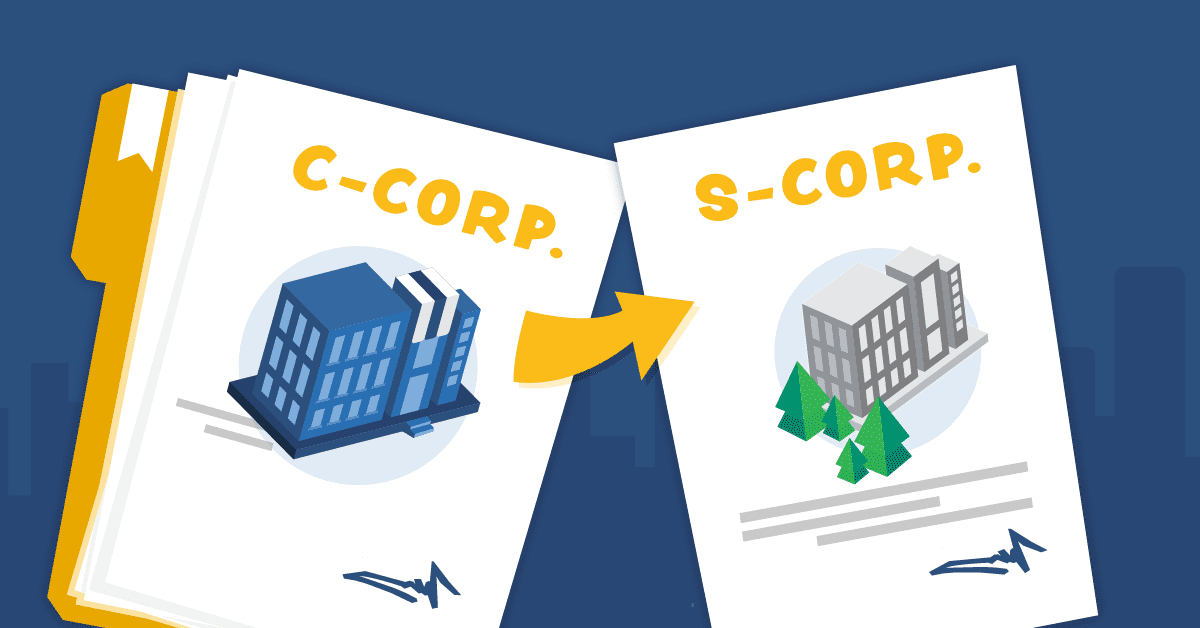C Corp to S Corp Conversion – is it Right for Your Business?

We’ve discussed the differences between taxation on stock sales and asset sales, and the differing respective tax consequences to C Corporations as tax paying entities and S Corporations as tax reporting entities. As we have noted, some C Corporations may consider converting to S Corporations in advance of a sale of the business (or for numerous other reasons) to take advantage of the tax advantages S Corporations may enjoy.
Indeed, in the 35 years between 1980 and 2015, C Corporations went from filing ~80% of U.S. corporate tax returns to filing ~26%, while S Corporations, representing ~20% of U.S. corporate tax returns in 1980, skyrocketed to ~74% of those returns. It is still true, though, that C Corporations represent a far greater amount of money than S Corporations.
However, there are potential pitfalls to these conversions – and one of them is an illustration of why a closely held business owner should plan ahead – way ahead, if possible – for their eventual exit from their business.
Some of these pitfalls include:
- The 5-year “recognition” period following conversion. If you convert your business from a C Corporation to an S Corporation, any gains realized on sales within the first 5 years following the conversion of appreciated assets the new S Corporation inherits from the C Corporation are subject to a built-in gains (BIG) tax at the corporate rate (currently with a top rate of 21%), as well as at the shareholder level. Consequently, it may be worth your while to wait out the full 5 years of the recognition period before selling any inherited business assets, if you plan to carry out such a conversion.
- Any net operating loss to the C Corporation cannot be carried forward by the new S Corporation. If the C Corporation cannot carry these losses back to prior years, the benefit of the loss is, well, lost.
- There are restrictions on what C Corporations may convert – there must be no more than 100 owner/shareholders, and these must all be either citizens or permanent residents of the U.S. With few exceptions, owner/shareholders must be individuals, not business entities, and the C Corporation’s stock must be issued in only one class of shares.
- S Corporation conversions have benefitted from an extra tax advantage, in that the Tax Cuts and Jobs Act of 2017 (TCJA) allowed for the deduction by shareholders of up to 20% of their qualified business income from their taxable income. Unfortunately, absent Congressional action, this provision is due to sunset as of December 31, 2025, which will significantly impact S Corporation shareholders in 2026 and beyond. It’s worth noting, however, that S Corporation conversions had been gaining traction since well before the TCJA was signed into law.
- An S Corporation which was converted from a C Corporation is subject to a special tax on passive investment income (e.g., rents, dividends, interest, royalties, and gains from sales of stock) if such income represents over 25% of the business’ gross receipts and the S Corporation has accumulated passive earnings and profits inherited from the C Corporation. If an S Corporation incurs this tax in 3 consecutive tax years, the conversion may be reversed, and the business turned back into a C Corporation.
- If the C Corporation used ‘last in, first out’ methodology in calculating inventory costs/profits, it will incur income tax liabilities on the monetary benefits they gained using this inventory method when it converts to an S Corporation. Payment of these tax liabilities can be spread over 4 years.
There are, of course, various strategies which can mitigate the tax impact of each of these potential pitfalls. If you are considering a C Corporation to S Corporation conversion, we cannot recommend too strongly that you consult with us before taking any steps. Let us help determine whether and how this would benefit you and your business, and we’ll go from there.
And if you are considering a potential sale of your business within the next decade, please don’t hesitate to call upon us. We can help you through every step.
Please click here to let me know how I can help you.
Until next time –
Peace,
Eric
